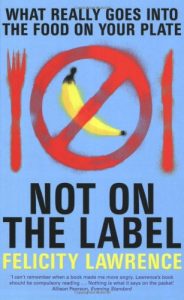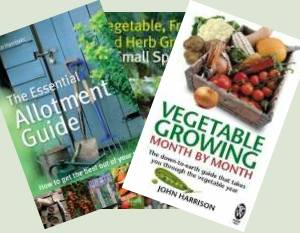 Not on the Label: What Really Goes into the Food on Your Plate is a shocking and highly readable expose of the state of the food production industry in Britain today.
Not on the Label: What Really Goes into the Food on Your Plate is a shocking and highly readable expose of the state of the food production industry in Britain today.
Felicity Lawrence will take some of the most popular foods we eat at home to show how the food industry in Britain causes ill health, environmental damage, urban blight, starving smallholders in Africa and Asia, and illegal labourers smuggled and exploited in Britain.
If you really care – buy it.
Available both new and used from Amazon for as little as a penny plus postage.
Amazon Reviews of Not on the Label
“Nutshell: Even though this book can be read in a matter of a few hours, it is crammed with fascinating and very useful information.
There are a number of similar books available at the moment, (see “Fast Food Nation – also very good), so why should you choose this one?
1. It is not sensational. Many books today contain “shocking revelations” of “medieval” practices leading to immediate catastrophe (you get the idea). This is not one of those books, even though the book states some facts which are worrisome, and which will convince you to change your ways. The point is that the autor could have made sensational claims, but chose to stick to more believable situations and examples, which does a lot for her credibility.
Example: She doesn’t write about the New World Order and how they want to control all the sources of energy and food. She rather writes about the supermarket system’s share in unemployment in the UK itself, and about the various supplements and additives in our food (pork in chicken, pesticides, that sort of thing). Things which affect us and things about which we should have been informed in the first place.
2. She offers a plan. The message of the book is not that we are doomed. It is rather that, if we keep on going about our supermarket business the way we are doing it now, we are in for a couple of very nasty suprises, in more areas than only health.
The author offers a number of (practical) solutions and alternatives. One entire chapter is dedicated to this, and her suggestions work. I use them myself and most are quite easy to implement.
This book falls into the “should be required reading” category.”
Further Books in this Section
- Not on the Label by Felicity Lawrence
- Shopped by Joanna Blythman
- Tescopoly by Andrew Simms
- The Best Democracy Money Can Buy by Greg Palast



